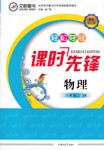题目内容
It's time to be water efficient!
As populations increase across Australia and the rest of the world,demand for water will also increase. If we don't reduce each individual's demand for water (both directly and through embodied water) ,the water situation will become dire.
It is obvious that we cannot increase demands for water much more without detrimental (有害的) effects to the environment,society and the economy.
It's all too easy to blame someone else for the water situation―"if 70% of water is used for agriculture then that's what we should target"―but it's not that easy. We all depend on the food and resources that agriculture provides,and while there are definitely opportunities to increase water efficiency on the farm,the solution will take more than that.
We each share responsibility for the sustainable management of our water resources,which means using less water at home,in the workplace,at school,on holidays,on the farm... everyone,everywhere,every time.
It's time to become water efficient!This involves reassessing our relationship with water,and learning to use it more sparingly. On the most basic level,it requires a behavioural change,and assigning a value to water that truly reflects its worth.
We can also unlock economic benefits of being water efficient. There are many real world examples given in the case studies on this site.
Everybody has a responsibility to save water,if future generations are to enjoy a similar standard of living to the one we enjoy now. In fact,many of the impacts associated with water use are likely to have an effect on our own lives!
Www. savewater. com. au has been designed to help you respond to the challenge to become water efficient. It acts as a central repository for relevant information and further advice,so that you can actually achieve significant savings. It also showcases those companies with products that will assist you in your goal.
( ) 5. You will probably find the article in .
A. a newspaper B. a TV programme
C. radio broadcast D. Internet
( ) 6. What can we do to save water?
A. Find more water resources.
B. Use less water everywhere,every time.
C. Realize the importance of saving water.
D. Unlock economic benefits of being water efficient.
( ) 7. What is NOT the reason to save water?
A. There are more and more people in the world.
B. The water resources are limited.
C. Agriculture needs more water.
D. The water is very important for us.
( ) 8. What is the main idea of this passage?
A. Water is very important for the human.
B. Everybody has a responsibility to save water.
C. It's time to be water efficient.
D. Let's save water for our future generations.
5-8 DBCC
B篇:本文分析了节水的原因和重要性。
5. D文章倒数第三段提到"在这个网站上有许多真实的世界研究案例"。
6. B文章中间说到我们每个人都有责任节约用水,无论何时何地都要减少用水。
7. C文章说到农业用水量大,没有办法减少,我们的食物要靠农业来提供;但并没有说农业用水在不断增加。
8. C文章中两次提到"It's time to be water ef?ficient",也分析了节水的原因和重要性,又提供了可供参考的有价值的网站。

 文敬图书课时先锋系列答案
文敬图书课时先锋系列答案